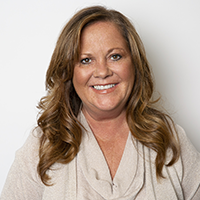We as a nation need to tear down the barriers for people with disabilities. One in four people in the United States is reported to have a disability, and yet the world is not designed for people with disabilities, creating daily obstacles for living their best life.
According to the Bureau of Labor’s latest statistics, 20.8% of persons with disabilities were employed compared to their non-disabled peers who had a 68.7% employment rate. It is our responsibility to come together in our communities to generate solutions and resources to increase employment and engagement for people with disabilities.
With the economic crisis caused by the COVID-19 global pandemic, there is an even greater need for communities and employers to align to find advanced technologies and innovation. Leaders in our communities need to make sure that during and after the pandemic that persons with disabilities are not cast aside but embraced and engaged for their talents and contributions.
Congress designated the month of October to observe National Disability Employment Awareness Month (NDEAM) for Americans to pay tribute to the accomplishments of the men and women with disabilities whose employment contributes to the strength of the nation’s economy and to ensure equal opportunities in the workforce for individuals with all types of abilities.
The theme for this year’s NDEAM recognition is “Increasing Access and Opportunity – Celebrating 30 years of the Americans with Disabilities Act (ADA) and 75 years of National Disability Employment Awareness Month (NDEAM).”
“People with disabilities are experienced problem solvers with a proven ability to adapt. Now more than ever, flexibility is important for both workers and employers,” said Jennifer Sheehy, the Office of Disability Employment Policy Deputy Assistant Secretary. “National Disability Employment Awareness Month celebrates the ingenuity people with disabilities bring to America’s workplaces.”
We are encouraged and inspired by some of the ingenuity that is being explored by employers, including Microsoft, Facebook, USBank, Starbucks, Coca-Cola, and others, changing the culture of their workforce and benefiting from employing people with disabilities. Employers are seeing the benefits from expanding their workforce to include people with disabilities. A study by Accenture found companies that employ people with disabilities recorded “28% higher revenue, double the net income, and 30% higher economic profit margins” over a four-year period.
ADA and NDEAM have given access for people with disabilities, but there is still a lot of work that needs to be done in communities of every size.
Collaborations like the one with Supplyframe and DesignLab, that bring together innovative engineers and designers from around the world for their annual Hackaday Prize, help advance access. The hardware design challenge focuses on globally impactful innovation by connecting non-profit organizations to engineers, expert mentors, and other resources, to create advanced solutions for people who face barriers, giving greater opportunities to people who need it most.
We are dedicated to unlocking the power that comes from integrating all individuals into society. Through our dedication, support, and advocacy, we can transform the quality of life for everyone. When citizens dedicate themselves to achieve accessibility, inclusion, and opportunity for all, everyone wins.
As the President and CEO of United Cerebral Palsy of Los Angeles, Ventura and Santa Barbara Counties (UCPLA), I am proud to work with the community, including volunteers, local businesses, legislators, family groups, and advocates at all levels to foster community integration that empowers individuals with developmental disabilities to pursue their passions and live as full, engaged members of society.
I encourage everyone to learn more about the work being done at UCPLA to see how they can help this cause for access and freedom for all.

Lori Anderson is president and CEO for United Cerebral Palsy of Los Angeles, Ventura and Santa Barbara Counties. To learn more, visit UCPLA.org.
